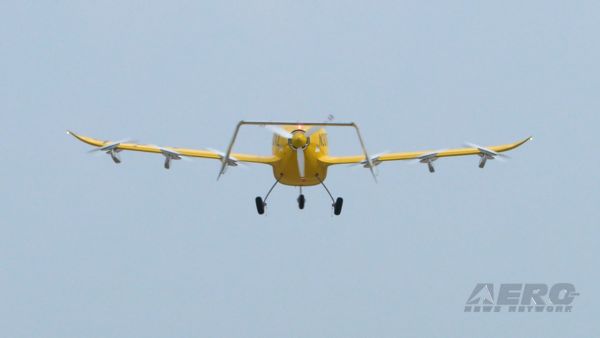Fri, Jul 03, 2009
Plane Struck Belly-First At Very High Speed
 The French agency
investigating the Air France 447, which crashed in the Atlantic
Ocean June 1st, says the aircraft impacted the water intact, belly
first, at a very high rate of speed, the World Associated Press
reported Thursday.
The French agency
investigating the Air France 447, which crashed in the Atlantic
Ocean June 1st, says the aircraft impacted the water intact, belly
first, at a very high rate of speed, the World Associated Press
reported Thursday.
Alain Bouillard who is leading the probe for the French accident
agency BEA said that one month after the crash, "we are very far
from establishing the causes of the accident."
While the pitot tubes on the A330 that have been the focus of
intense speculation in this incident, and others under
investigation by the NTSB, they were not cited as the cause of the
disaster. "It is an element but not the cause," Bouillard told a
news conference in Le Bourget outside Paris. "The investigation is
a big puzzle," he continued. "Today we only have a few pieces of
the puzzle which prevents us from even distinguishing the photo of
the puzzle."
 The heavy storms and
lightning in the area of AF447 were also downplayed in Bouillard's
presentation. Meteorological data show the presence of storm clouds
in the area the jet would have flown through, but nothing out of
the ordinary for the equatorial region in June, Bouillard said,
eliminating the theory that the plane could have encountered a
storm of unprecedented power. Other flights through the area
shortly after Flight 447 disappeared didn't report unusual weather,
Bouillard said.
The heavy storms and
lightning in the area of AF447 were also downplayed in Bouillard's
presentation. Meteorological data show the presence of storm clouds
in the area the jet would have flown through, but nothing out of
the ordinary for the equatorial region in June, Bouillard said,
eliminating the theory that the plane could have encountered a
storm of unprecedented power. Other flights through the area
shortly after Flight 447 disappeared didn't report unusual weather,
Bouillard said.
The initial report from BEA concluded in part:
- The meteorological situation was typical of that encountered in
the month of June in the inter-tropical convergence zone.
- There were powerful cumulonimbus clusters on the route of
AF447. Some of them could have been the center of some notable
turbulence.
- Several airplanes that were flying before and after AF447, at
about the same altitude, altered their routes in order to avoid
cloud masses.
- Twenty-four automatic maintenance messages were received
between 2 h 10 and 2 h 15 via the ACARS system. These messages show
inconsistency between the measured speeds as well as the associated
consequences.
- Visual examination showed that the airplane was not destroyed
in flight. It appears to have struck the surface of the sea in a
straight line with high vertical acceleration.
The report does not call for a grounding of all Airbus long haul
jets.
The search continues for the voice and cockpit data recorders
from the plane, but they are only designed to emit a signal for
about a month after being activated.
More News
States That Current Process is Damaging National Aerospace Development US Senator Jerry Morgan is pushing the FAA to speed up the process for rocket launch licensing. He argues tha>[...]
From 2015 (YouTube Edition): Model Aviator Aims For Full-Scale Career While at the 2015 Indoor Electric RC Festival, referred to as eFest, ANN CEO and Editor-In-Chief, Jim Campbell>[...]
Dave Juwel's Aviation Marketing Stories ITBOA BNITBOB ... what does that mean? It's not gibberish, it's a lengthy acronym for "In The Business Of Aviation ... But Not In The Busine>[...]
Aero Linx: Cardinal Flyers Online The Cardinal Flyers Online Web site was created and is maintained by me, Keith Peterson. My wife Debbie and I have owned a 1976 RG since 1985. Wit>[...]
Clearance Void If Not Off By (Time) Used by ATC to advise an aircraft that the departure release is automatically canceled if takeoff is not made prior to a specified time. The exp>[...]
 Senator Pushes FAA to Accelerate Rocket Launch Licensing
Senator Pushes FAA to Accelerate Rocket Launch Licensing Classic Aero-TV: RJ Gritter - Part of Aviations Bright New Future
Classic Aero-TV: RJ Gritter - Part of Aviations Bright New Future Aero-FAQ: Dave Juwel's Aviation Marketing Stories -- ITBOA BNITBOB
Aero-FAQ: Dave Juwel's Aviation Marketing Stories -- ITBOA BNITBOB ANN's Daily Aero-Linx (10.27.24)
ANN's Daily Aero-Linx (10.27.24) ANN's Daily Aero-Term (10.27.24): Clearance Void If Not Off By (Time)
ANN's Daily Aero-Term (10.27.24): Clearance Void If Not Off By (Time)




